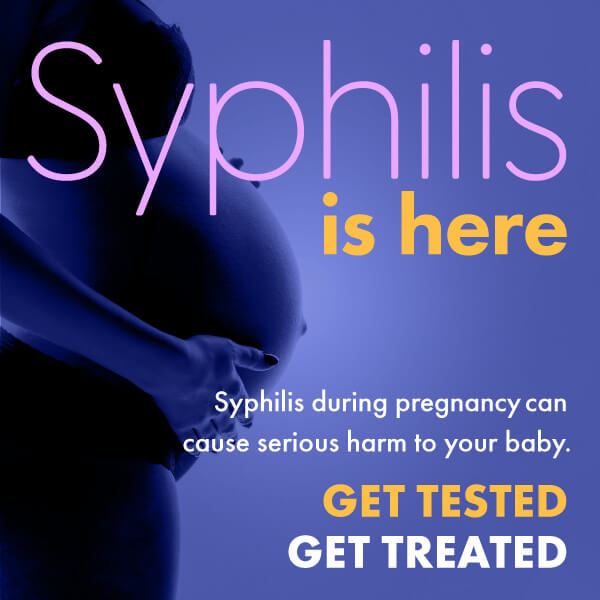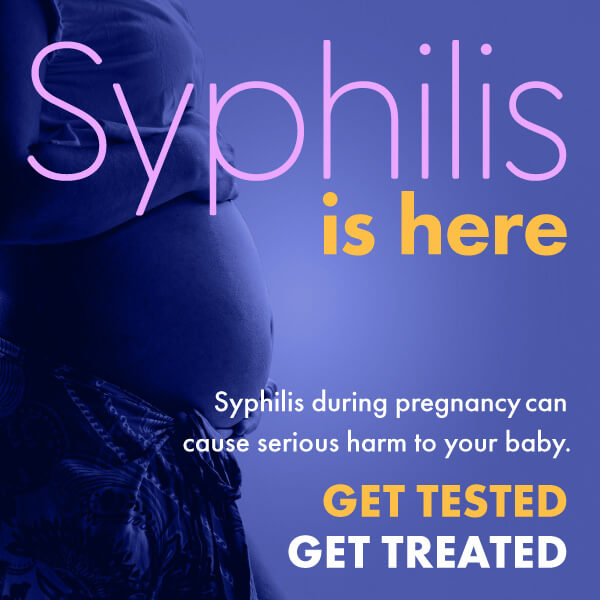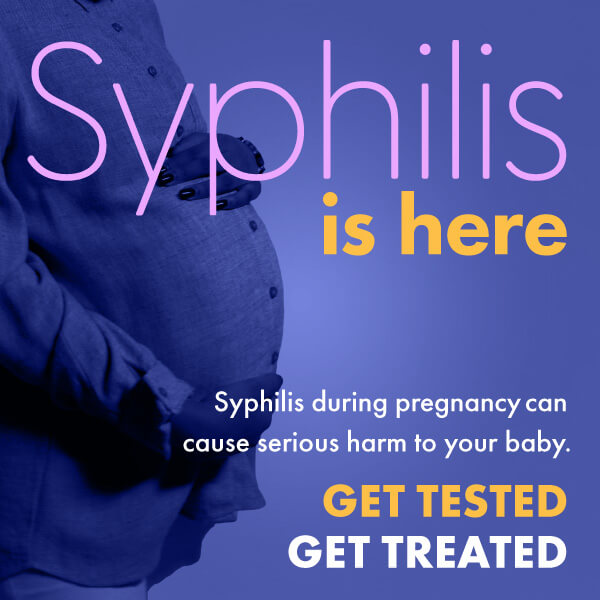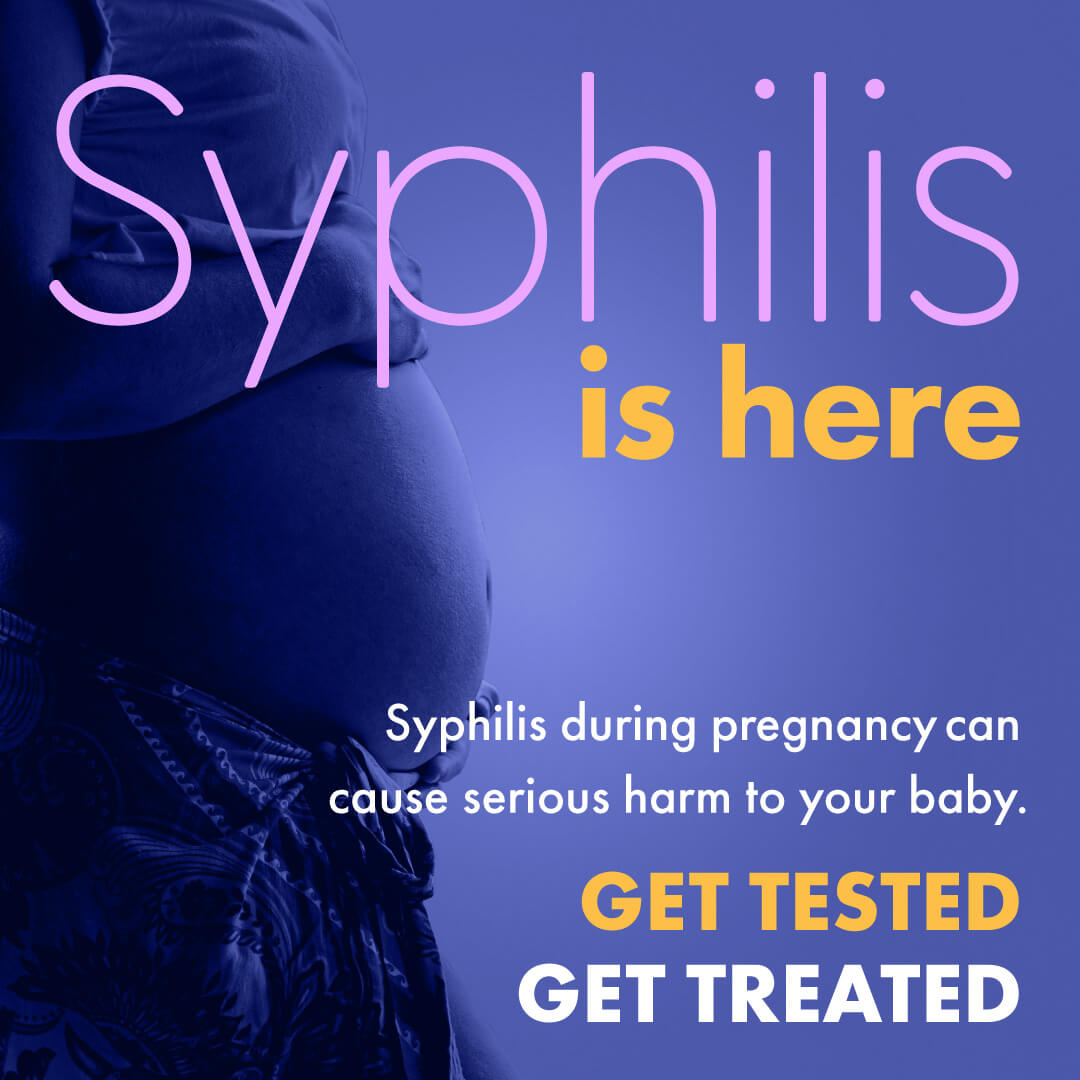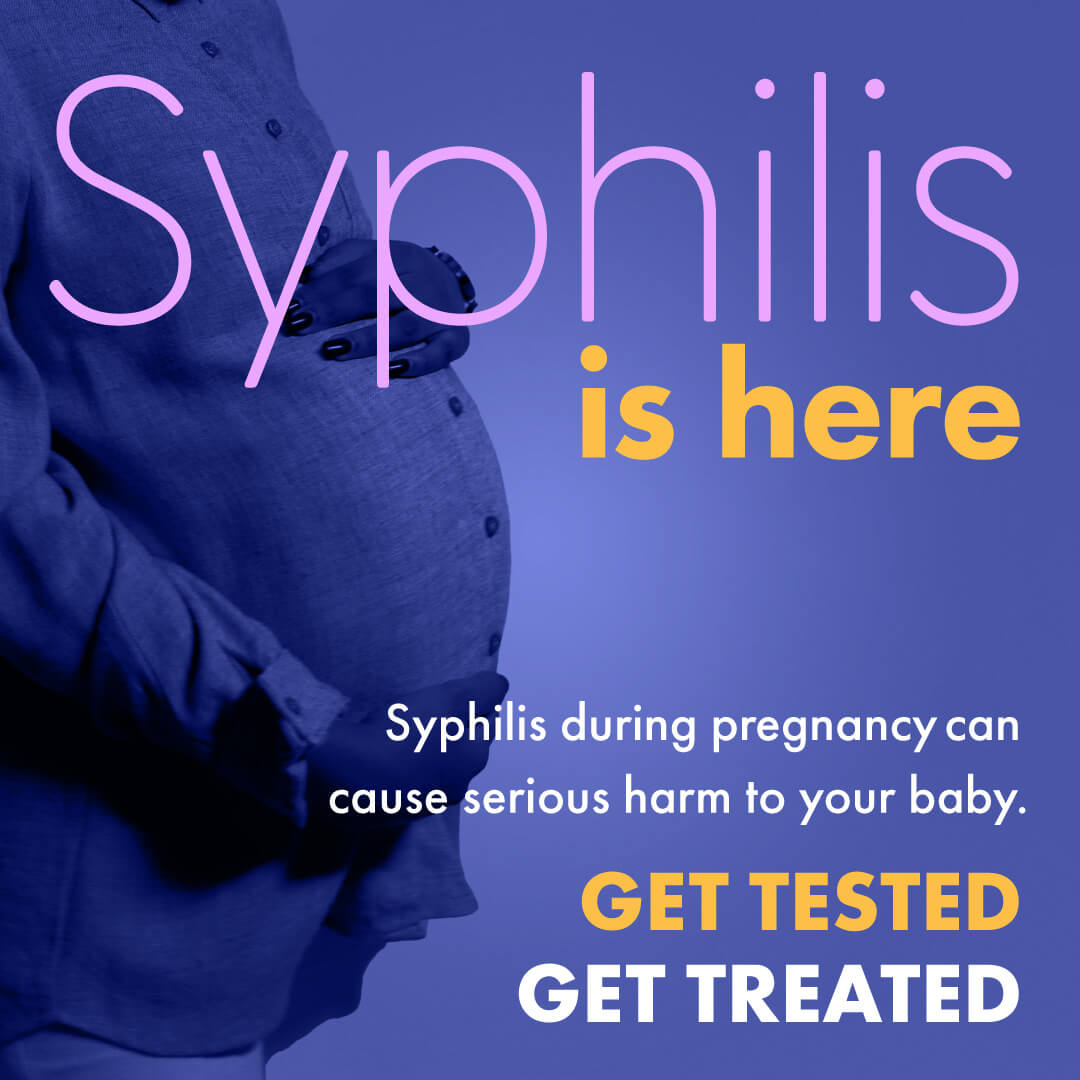
In Ohio, syphilis increased 213% between 2017 and 2021. Cases are still going up.
Syphilis is spread sexually. When more people have it, having sex becomes more risky.
There are things you can do to take care of yourself and your unborn baby. The most serious part of syphilis is when a baby is born with it (congenital syphilis). From 2020 to 2022 there was a 300% increase in congenital syphilis.
If a mother has untreated syphilis while pregnant, there is a very high chance the unborn baby will also have it. When this happens, the baby may be stillborn, die shortly after birth, or be born with serious health problems.
Prenatal care that includes frequent testing for syphilis is a must.
